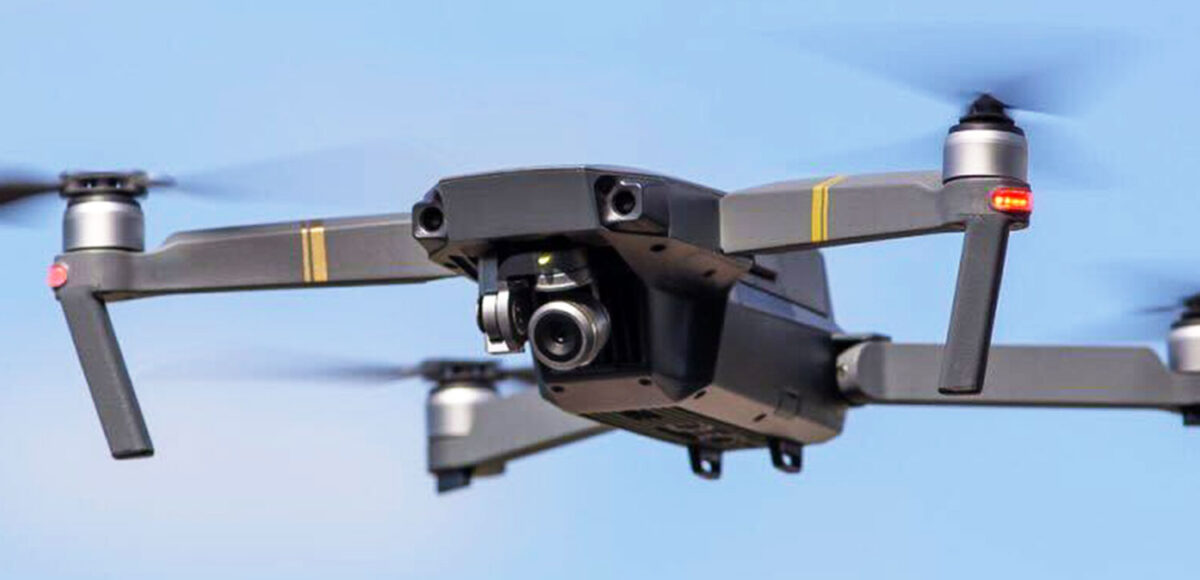At its Aug. 6 Regular Meeting, the Beverly Hills City Council voted 4-1 to oppose Senate Bill 99, which would ban the use of several of the Beverly Hills Police Department (BHPD) drones.
The bill is authored by Senator Tom Umberg, D-Santa Ana, and would prevent cities from purchasing military equipment from any manufacturers that the United States Armed Forces is prohibited from purchasing. This bill would apply to several of BHPD’s drones, which are produced by Chinese manufacturer DGI.
The goal of the proposed law is to minimize the potential for foreign companies, like DGI, to use their technology to extract information from local municipalities.
“From scanning terrain for lost hikers, to assessing wildfire risk, it’s understandable that drones have become a critical tool of local agencies and governments,” said Senator Umberg in a statement on his bill. “That said, the fact that the Pentagon has prohibited equipment from a specific company due to fears of spying should raise bright red flags for all consumers.”
The BHPD, however, opposes the law as it believes that its drones are well protected from cybersecurity threats and provide a vital security service to the city. Drones are a core component of the Real Time Watch Center, a world-class surveillance network that led to a 21% decrease in crime during its first year of operation.
The League of California Cities and the California State Sheriffs’ Association also oppose SB 99.
“I think that understanding the different organizations that are opposed to this and understanding what an impact the use of the drones has made for our city with regard to safety for our residents, I think that we want to protect our ability to use them,” said Councilmember Mary Wells, explaining her reasoning for opposing SB 99.
City Councilmember John Mirisch was the sole councilmember who did not recommend opposing the bill. He was concerned about the potential security risks stemming from Chinese drone technology and wanted to get the opinion of cybersecurity expert and local Congressmember Ted Lieu before taking a stance on the bill.
“It’s naive to say, well, even if they [China] are able to hack into it [BHPD’s drones] it’s not going to do any damage,” said Mirisch, “I think we have to be absolutely wary about foreign actors—especially those with competing interests—not to rely on them too much.”
During the meeting, BHPD Lieutenant Todd Withers explained the security Beverly Hills has in place to prevent foreign interference with its drones. The department uses Motorola Cape software to provide end-to-end encryption of all transmissions from the Real Time Watch Center.
“We feel pretty comfortable that no data transmission is going back to any Chinese organizations,” he said.
He also explained that the police department had researched over 50 different drone manufacturers and that none offer a comparable price point or sophistication of technology as DGI. For example, the drones on the market in the United States are $6,000 to $8,000 more expensive than the current DJI product.
“There’s plenty [of American drones] that are up and coming and probably viable candidates within the next few years,” he said. “They’re just not at the level of clarity for camera and flight characteristics that our drones produce right now.”
This was also a key reason why the League of California Cities and the California State Sheriffs’ Association opposed the bill.
“Local governments that use impacted drones will be forced to acquire new technology that is considerably more expensive than a lot of what is currently in use, train their staffs to use it, and likely suffer from a lack of product and feature diversity,” wrote CCSA Legislative Director Cory Salzillo in a June 27 letter to Sen. Umberg. “For law enforcement agencies, this translates into difficulty completing their missions at much higher prices with threats to public safety.”
During the meeting, Beverly Hills Municipal Affairs Program Manager Cynthia Owens said she received intelligence that Umberg was considering an amendment to the bill to allow local municipalities to continue using drones they have already purchased.
“These are discussions unofficially occurring in Sacramento and currently there are no bill amendments being proposed,” said Owens. “We just know these discussions are happening.”
SB 99 passed on the Senate floor on May 22 and needs to also pass on the Assembly floor in order to become a law.
On Aug. 7, a day after the City Council meeting, the bill was placed on suspense file by the Assembly Appropriation Committee. This means the fate of the bill, and several hundred others, will be decided during the Assembly Appropriation Committee’s Suspense Hearing on Aug. 15.







